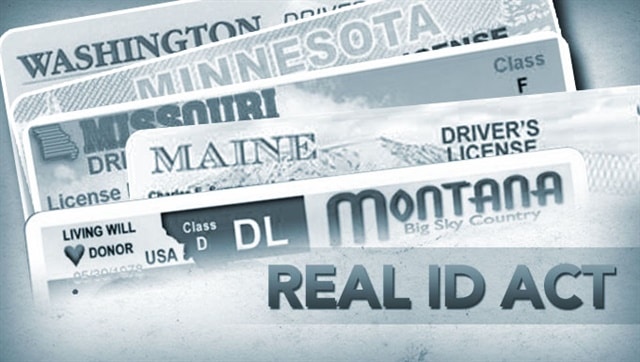The Real ID Act was passed by the US congress in 2005 in the wake of the 9/11 terrorist attack with the aim of setting minimum security standards for the issuance of identifications cards and driver’s licenses. However, it has taken more than 10 years for the federal government to implement the act fully.
This process has been riddled with confusion as to whether or not the Real ID is really necessary but generally all states are required to be compliant by October 1, 2020. A few years ago some states vehemently opposed this law even passing laws to reject it but today most states are gradually beginning to comply.
In this article, we discuss whether the Real ID Act is essential to our sovereignty or an invasion of our privacy including everything else you need to know about this act.
About the Real ID Act
This act prohibits federal agencies from accepting identification cards and licenses from states that fail to meet the established minimum security standards. The aim of the act is to eliminate airline terrorism by introducing more stringent requirements for obtaining documents that grant access to domestic planes.
Under this act, state agencies such as the Department of Motor Vehicles require a lot of paperwork for one to proof residency before issuing identification cards and licenses. Domestic travelers in the United States are beginning to see some signs at airports informing them of a new type of driver’s license that must be produced to access airports or board planes.
Initially, fake IDs could easily be purchased online but the Real IDs incorporate new technology that makes them machine-readable and much more difficult to corrupt or forge. The new IDs will have a small gold or black star in the upper right-hand corner as a way to identify compliance.
Situations That Warrant a Real ID
The Real ID will be required for domestic air travel as well as gaining access to certain federal facilities like military bases that require ID. Visitors will be turned away if they present an identification card that is not real ID compliant. However, the real ID will not be needed to drive, vote, receive or apply for federal benefits, receive life-saving services at a hospital or access a federal facility where an ID is not needed such as a post office.
Pros of the Real ID Act
This act hopes to intensify homeland security by decreasing terrorist threats and other incidents in the US. It will also help to prevent identity theft especially by identity thieves who may be targeting states without strict security policies. Additionally, it will now be more difficult to forge or purchase a fake ID online thanks to increased security features.
Personal information is encrypted in form of a barcode leaving little or no room for errors in the identification process. The unified jurisdiction or the sharing of crucial information among states will enhance the security of citizens across all state lines.
Setbacks of the Real ID Act
The Real ID Act has raised some concerns especially among libertarian leaning states and groups like the ACLU as to whether the act is indeed necessary or is an invasion of privacy. Some have argued that the new license is a national ID card that the federal government will use to create a database for tracking individuals.
The other issue has to do with the demarcation of compliant and non-compliant licenses since in some states like California, a driver’s license can be issued to an undocumented individual hence this license will not be regarded as Real ID compliant. This enhanced form of identification also bears a barcode unique to each individual containing personal information and can also be shared among states which raises concerns about the safety and privacy of personal information and data.
Sharing sensitive information among states has raised fears of serious security breaches since anyone with a scanner can be able to read the barcode and access an individuals private data. The act has also been seen as targeting undocumented immigrants since one requires certain documents such as birth certificate and social security cards to obtain a Real ID hence people who were not born in the US may find it difficult to present these documents. There is also the issue of inconsistency since an individual in a non-compliant state will not be able to access government facilities or travel.
Several states have been deterred by the high cost of implementation but as the Real ID roll-out continues, the effects remain to be seen.
All content herein is owned by author exclusively. Expressed opinions are NOT necessarily the views of VNR, authors, affiliates, advertisers, sponsors, partners, technicians, or VT Network. Some content may be satirical in nature.
All images within are full responsibility of the author and NOT VNR.
Read Full Policy Notice - Comment Policy





























